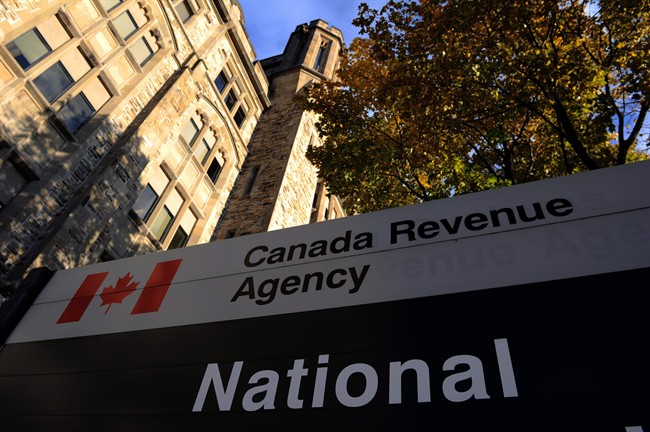OTTAWA – The federal revenue agency has written off at least $4 billion in debts in the last two years – including accounts worth more than $10 million, newly released records show.

Debts were declared uncollectible because those owing had died, gone bankrupt, could not be located or lived outside Canada, according to Canada Revenue Agency records obtained under the Access to Information Act.
In other cases, officials considered it not worth the expense to track down the money owing, or they reached a compromise settlement with the debtor.
The revenue agency says it makes every effort to collect all tax debts from those who do not pay voluntarily.
READ MORE: TFSA expansion benefits higher earners: study
Murray Rankin, the NDP’s deputy revenue critic, questioned whether the government is doing enough to collect the substantial sums owed to the federal treasury.
“They are not going after international tax debt the way they should be,” Rankin said in an interview after reviewing the newly disclosed documents.
The outstanding balance in undisputed, unpaid taxes was $29 billion as of March 31, 2012, the federal auditor general reported in a 2013 examination of the issue.
According to the latest federal public accounts, the Canada Revenue Agency wrote off $3.4 billion in debts in 2013-14, representing the lion’s share of $3.7 billion in total federal write-offs.
- Posters promoting ‘Steal From Loblaws Day’ are circulating. How did we get here?
- Canadian food banks are on the brink: ‘This is not a sustainable situation’
- Is home ownership only for the rich now? 80% say yes in new poll
- Investing tax refunds is low priority for Canadians amid high cost of living: poll
The newly disclosed revenue agency records do not align neatly with fiscal years, but span the period from Jan. 12, 2013, through Oct. 10, 2014, when just over $4 billion was written off.
Names and other identifying information have been stripped from the records for privacy reasons. However, they provide insight into the scope, nature and frequency of the revenue agency’s decisions.
READ MORE: Giving Tree Foundation fighting Canada Revenue Agency to keep charity status
A January 2015 memo to revenue commissioner Andrew Treusch covered just one segment of the write-offs during the 2014-15 fiscal year, involving 700 accounts totalling more than $306 million.
Magali Deussing, a federal revenue agency spokeswoman, declined to make anyone available for an interview about the figures.
A decision on whether an account is uncollectible and can be written off is based on rules set out in the Financial Administration Act and other legislative authorities such as the Bankruptcy and Insolvency Act, Deussing said in an emailed statement.
Under the law, an account may be submitted for write-off only if “there is no reasonable prospect of recovery,” she said.
The heavily censored revenue agency records say the department’s Uncollectible Debts Committee examined all relevant documents in coming to their decisions.
READ MORE: Anti-fraud centre warns of CRA scams spike; here’s one to look out for
The records indicate that between July and October last year, there appeared to be at least two cases in which the write-offs exceeded $10 million apiece.
The emphasis a government places on debt collection is “all about political priorities,” Rankin said. “Are they going after them as aggressively as they might in other countries?”
Allowing debtors that owe more than $10 million off the hook with “a stroke of the pen appears to be disturbing,” he added.
Concerns surrounding international tax evasion and aggressive tax avoidance using offshore accounts are not exclusive to Canada – they are worldwide problems, Deussing said.
The government’s latest budget included additional monies to address tax avoidance by large organizations as well as offshore non-compliance, she noted.
When a debt is declared a write-off, it does not eliminate the taxpayer’s obligation to pay, Deussing added.
The revenue agency “has the right to collect the debt in the future, if and when the taxpayer is located or the taxpayer’s financial situation improves.”



Comments